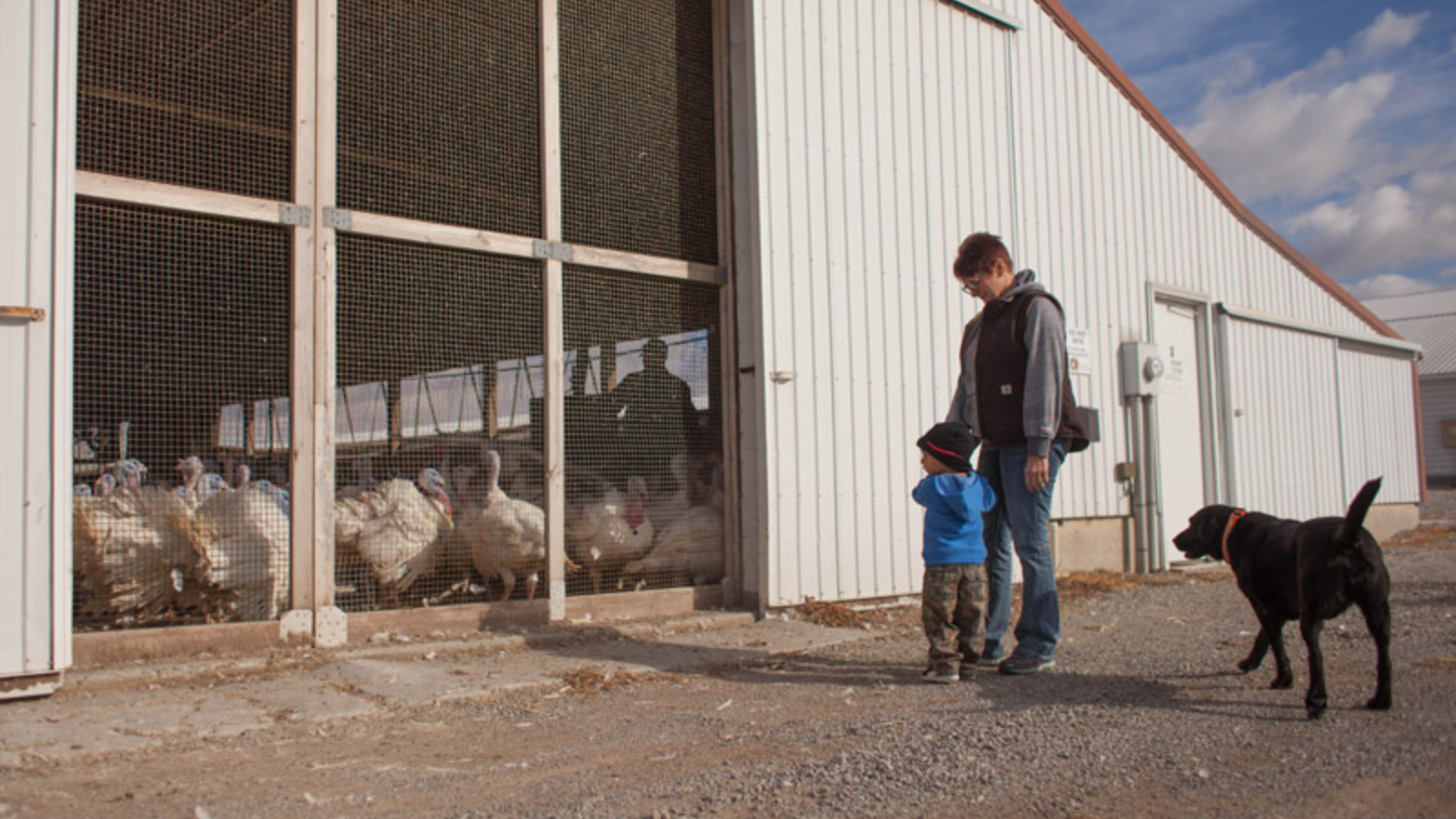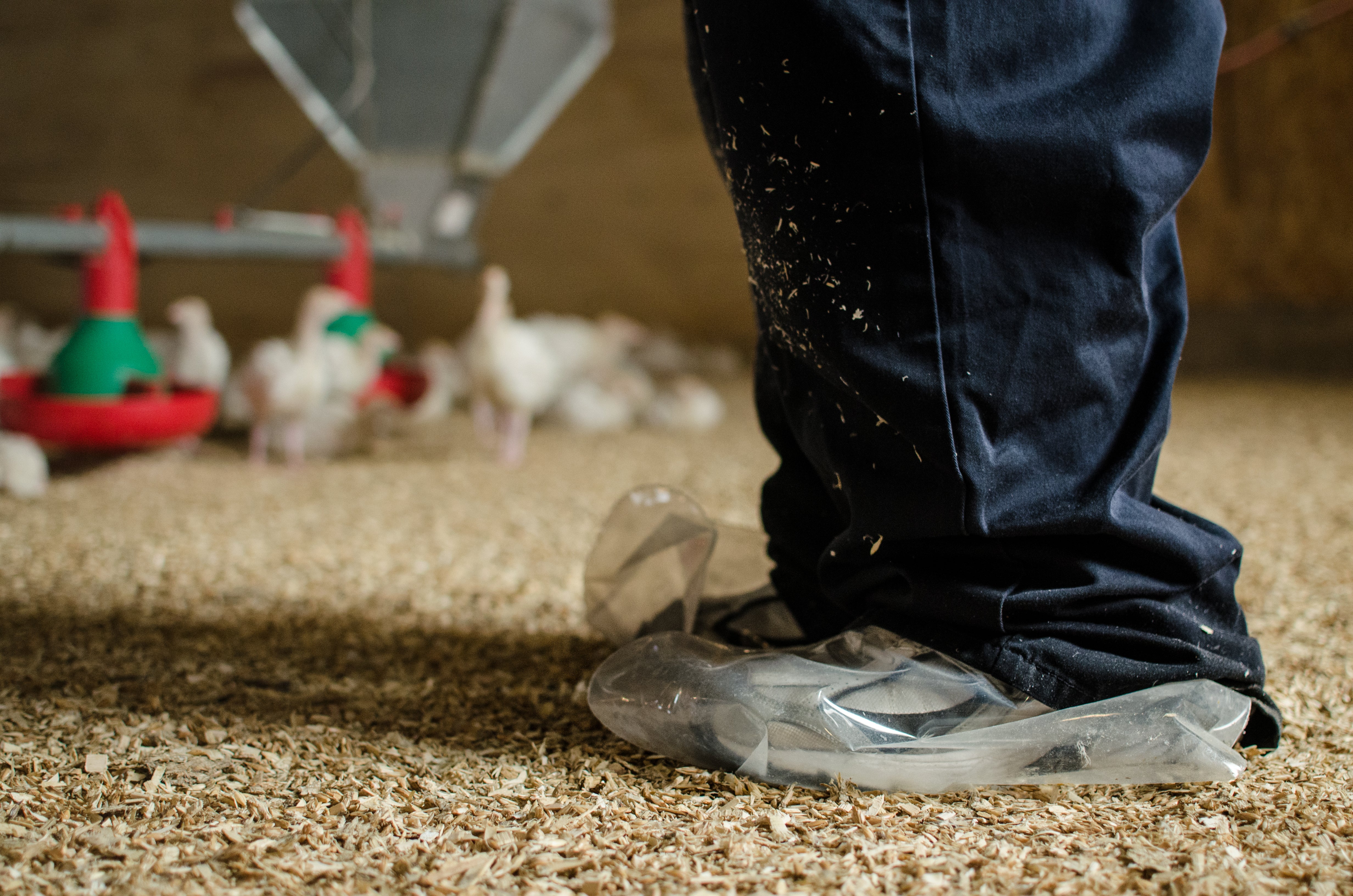Bird Flu: What you need to know
As a community partner, your electric cooperative is committed to safety. We serve poultry farms, and many of our members raise poultry, like chickens, as well. With the steep rise in Avian Influenza this year, we are assisting with education efforts to help reduce the spread of this devastating virus.
In this article is important information about what bird flu is, who is at risk, and what you can do to help stop the spread.
What is High Path Avian Influenza (HPAI):
High Path Avian Influenza, a virus commonly known as bird flu, is a highly contagious virus that can infect all types of birds and be especially devastating to domestic poultry (turkey and chicken).
How it spreads:
The virus is carried by waterfowl, such as ducks and geese. These birds generally do not become ill from the virus. Domestic poultry may be exposed to the virus through contaminated materials or boots, as well as direct contact with feces or other infected birds. Bird flu can infect backyard flocks. The best way to protect birds from the virus is to practice good biosecurity and keep them in a covered fenced-in area.

How can you help stop the spread:
 Practicing good biosecurity is one of the best ways to help stop the spread. Biosecurity refers to the practices and procedures that prevent the spread of disease. These include preventing contact with wild birds, avoiding visitors, and using dedicated clothes/boots to work with birds.
Practicing good biosecurity is one of the best ways to help stop the spread. Biosecurity refers to the practices and procedures that prevent the spread of disease. These include preventing contact with wild birds, avoiding visitors, and using dedicated clothes/boots to work with birds.
Another practice to help stop the spread is maintaining a clean environment for the birds. This includes using water for drinking and cleaning from a well or municipal source and keeping other materials like feed and bedding stored away to prevent contamination from wild animals and rodents.
Additional information on how to stop the spread can be found at
- https://agri.ohio.gov/divisions/animal-health/resources/02.25.2022HPAIUpdate (Ohio Department of Agriculture).
- https://www.youtube.com/watch?v=TnseqPmzJO4 (OSU Extension video on youth biosecurity)
The risks for everyday people:
The Bird Flu virus does not normally infect humans. However, sporadic human infections with bird flu viruses have occurred. According to the CDC, no human cases have been detected in the United States.
Eggs, chicken, and turkey meat are safe to eat. There is no evidence Bird Flu can be transmitted through safely handled and properly cooked eggs and meat.
Additional resources on your risks can be found at https://www.cdc.gov/flu/avianflu/index.htm (Center for Disease Control and Prevention).
How to know if Bird Flu is near you:
To see if Bird Flu has been reported in your area, see the following links.
Ohio: https://agri.ohio.gov/divisions/animal-health/resources/02.25.2022HPAIUpdate (Ohio Department of Agriculture)
United States: https://www.aphis.usda.gov/aphis/ourfocus/animalhealth/animal-disease-information/avian/avian-influenza/hpai-2022/2022-hpai-commercial-backyard-flocks (United States Department of Agriculture)
The symptoms and how to report it:
Symptoms to look for in any wild or domestic birds include:
- Decreased egg production
- Sudden death without clinical signs
- Swelling of the head, eyelids, comb, wattles, and hocks
- Nasal discharge
- Lack of coordination
The following types of birds should be reported if these symptoms are present:
- Any raptor, such as a bald eagle
- Multiple waterfowl, such as geese or ducks
- Any large congregation of sick or dead birds
Report sick or dead birds at the following sources:
- Ohio:
- Call: 800-WILDLIFE (945-3543) (Ohio Department of Natural Resources
- Call: Ohio Department of Agriculture
- Regular Business Hours: 614-728-6220
- After Hours: 888-456-3405
- https://ohiodnr.gov/discover-and-learn/safety-conservation/about-ODNR/wildlife/report-diseased-birds (submit a report of sick or dead wildlife with photos/videos)
- United States
- Call: 1-866-536-7593 (United States Department of Agriculture: Toll Free Report Line)

